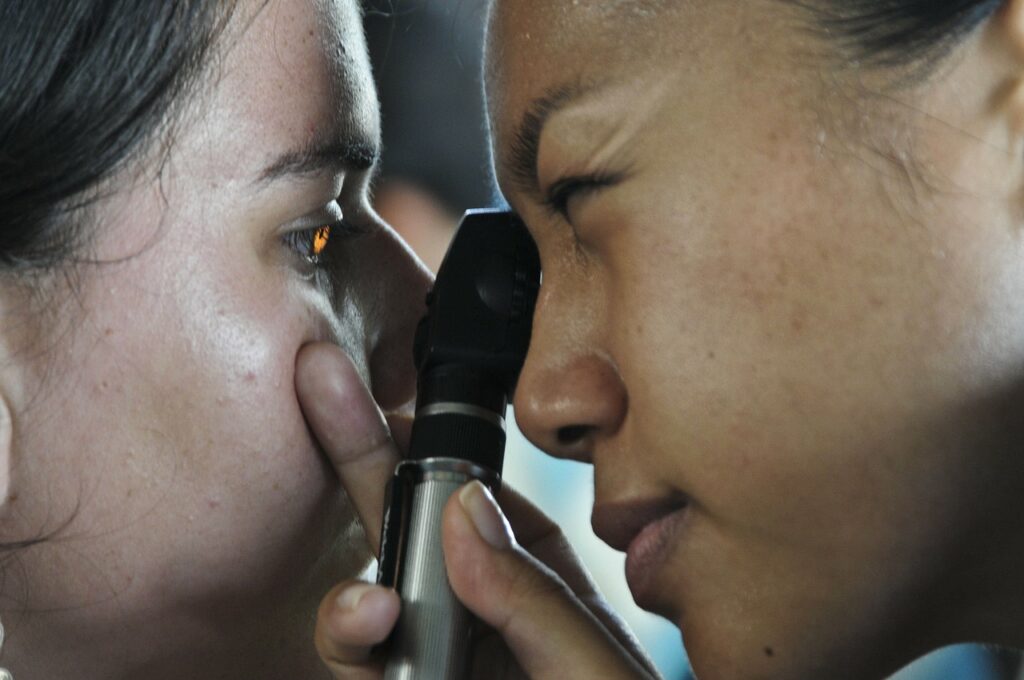“Judge not, that you be not judged. For with the judgment you pronounce you will be judged, and with the measure you use it will be measured to you. Why do you see the speck that is in your brother’s eye, but do not notice the log that is in your own eye?” (Matthew 7:1-3, ESV)
Why is it so easy for me to see your faults but not my own? I think I have good vision; but if I’m blinded to my own shortcomings, I may have a vision problem after all. Perhaps I need an eye exam to make sure I’m seeing things clearly.
Jesus talked about this eye condition in the Sermon on the Mount. He said we see the smallest speck in someone else’s eye but are oblivious to the log within our own eye. We delight to criticize another while excusing similar behavior in our own lives. The Lord called this hypocrisy.
I read of a man who served on a jury deliberating a case with very evident guilt. Yet one juror held out for quite a while, opposing the other eleven jurors, because the Bible says to “judge not.” It’s a humorous story, but it points out how we can incorrectly apply Scripture if we use only a certain phrase from a passage. There is a difference between discerning wrong and judging someone by our own standards rather than biblical principles. The Bible guides us on this, so let’s look at a few things it says about judging.
Things aren’t always what they seem. Do we know the full story? Or are we jumping to conclusions? “Do not judge by appearances, but judge with right judgment” (John 7:24, ESV).
Hypocritical judgment is wrong. We must never seek to expose another’s wrongdoing yet cover our own sins. That is hypocrisy. “Therefore you have no excuse, O man, every one of you who judges. For in passing judgment on another you condemn yourself, because you, the judge, practice the very same things . . . Do you suppose, O man—you who judge those who practice such things and yet do them yourself—that you will escape the judgment of God?” (Romans 2:1, 3, ESV).
Our goal should be restoration. What is our motive in examining this person’s actions? Will we work to lovingly restore one who has fallen, or do we just want to push him farther down? “Brothers, if anyone is caught in any transgression, you who are spiritual should restore him in a spirit of gentleness. Keep watch on yourself, lest you too be tempted” (Galatians 6:1, ESV).
If our motivation isn’t love, we should remain silent. If we are contentious and causing discord, our motive is wrong. (See Romans 16:17-18.) God holds us accountable for every word we speak. “I tell you, on the day of judgment people will give account for every careless word they speak, for by your words you will be justified, and by your words you will be condemned.” (Matthew 12:36-37, ESV).
We reap what we sow. If we want mercy, we must give mercy. If we want forgiveness, we must offer forgiveness. Our actions will come back to bless us or to bite us. We choose what we reap. “Judge not, and you will not be judged; condemn not, and you will not be condemned; forgive, and you will be forgiven” (Luke 6:37, ESV).
The more I read the Bible, the more convinced I become that our every thought and action must be covered by love. That means we build up, not tear down. Love responds with concern and compassion. Love seeks healing and restoration. This is not condoning sin or wrongdoing, but it does offer a way back. Before we criticize or judge another, consider the admonition of Romans 14:13.
“Therefore let us not pass judgment on one another any longer, but rather decide never to put a stumbling block or hindrance in the way of a brother” (ESV).
Lord, whenever I feel tempted to judge another’s actions, help me to check my motives and guard my speech. Give me discernment and wisdom when dealing with difficult situations. I never want to cause harm or make someone stumble. Let Your love flow through me and cover my brother or sister.




Comments are closed.